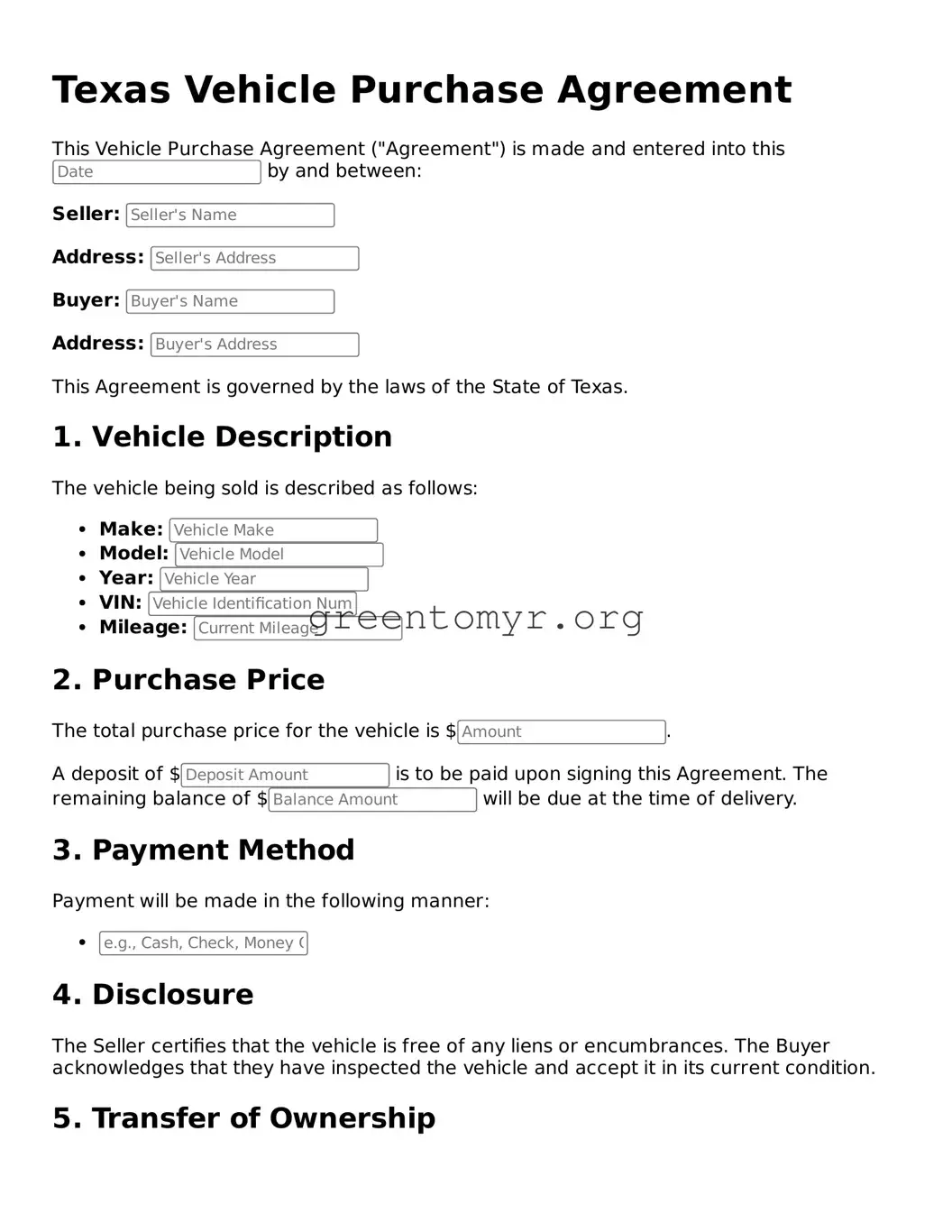Vehicle Purchase Agreement Form for the State of Texas
The Texas Vehicle Purchase Agreement form is a legal document used to outline the terms and conditions of a vehicle sale between a buyer and a seller in Texas. This agreement serves to protect both parties by clarifying obligations, payment details, and the vehicle's description. For those ready to buy or sell a vehicle, filling out this form is an essential step; click the button below to get started.
